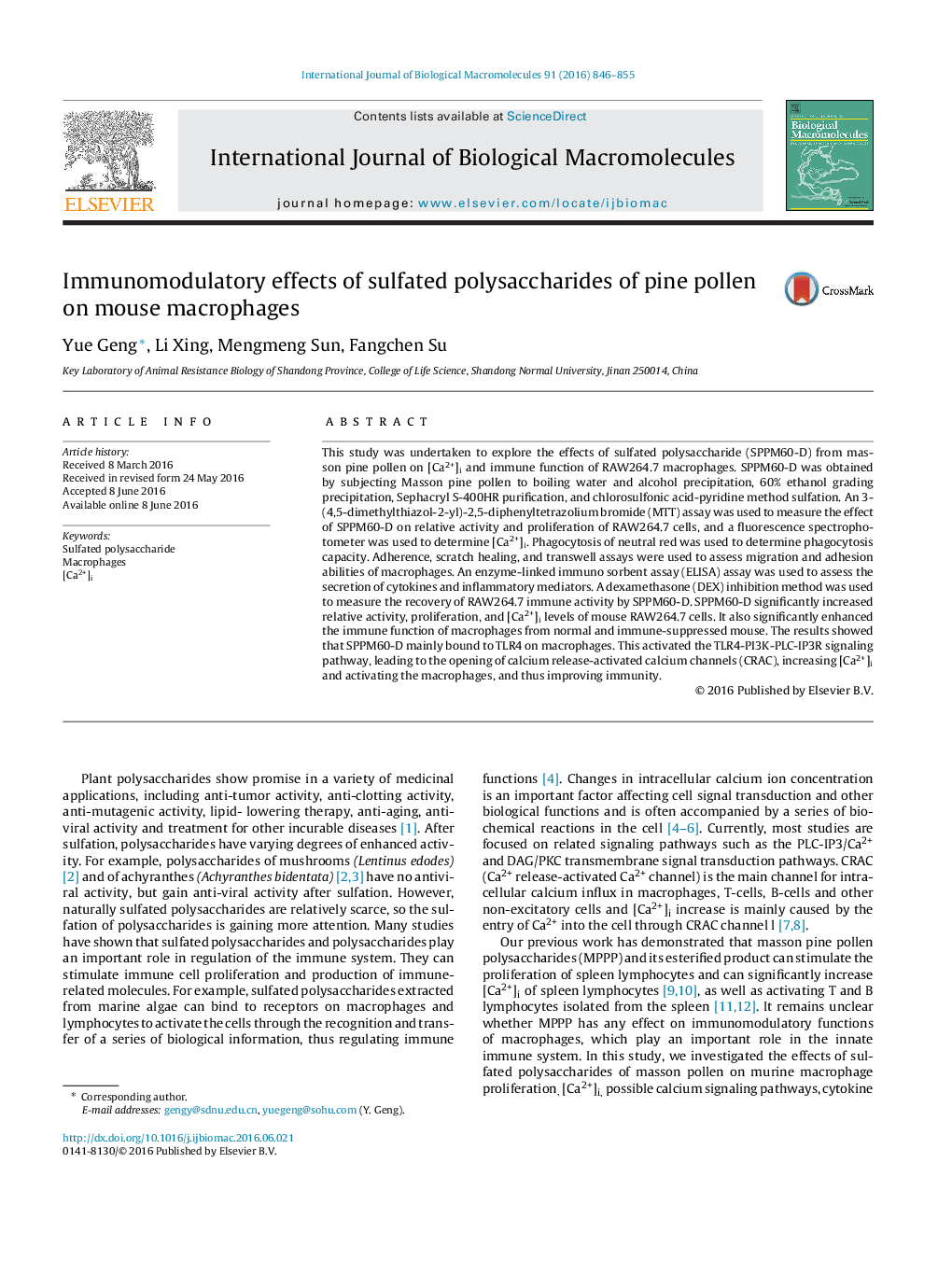| Article ID | Journal | Published Year | Pages | File Type |
|---|---|---|---|---|
| 1985694 | International Journal of Biological Macromolecules | 2016 | 10 Pages |
This study was undertaken to explore the effects of sulfated polysaccharide (SPPM60-D) from masson pine pollen on [Ca2+]i and immune function of RAW264.7 macrophages. SPPM60-D was obtained by subjecting Masson pine pollen to boiling water and alcohol precipitation, 60% ethanol grading precipitation, Sephacryl S-400HR purification, and chlorosulfonic acid-pyridine method sulfation. An 3-(4,5-dimethylthiazol-2-yl)-2,5-diphenyltetrazolium bromide (MTT) assay was used to measure the effect of SPPM60-D on relative activity and proliferation of RAW264.7 cells, and a fluorescence spectrophotometer was used to determine [Ca2+]i. Phagocytosis of neutral red was used to determine phagocytosis capacity. Adherence, scratch healing, and transwell assays were used to assess migration and adhesion abilities of macrophages. An enzyme-linked immuno sorbent assay (ELISA) assay was used to assess the secretion of cytokines and inflammatory mediators. A dexamethasone (DEX) inhibition method was used to measure the recovery of RAW264.7 immune activity by SPPM60-D. SPPM60-D significantly increased relative activity, proliferation, and [Ca2+]i levels of mouse RAW264.7 cells. It also significantly enhanced the immune function of macrophages from normal and immune-suppressed mouse. The results showed that SPPM60-D mainly bound to TLR4 on macrophages. This activated the TLR4-PI3K-PLC-IP3R signaling pathway, leading to the opening of calcium release-activated calcium channels (CRAC), increasing [Ca2+]i and activating the macrophages, and thus improving immunity.
